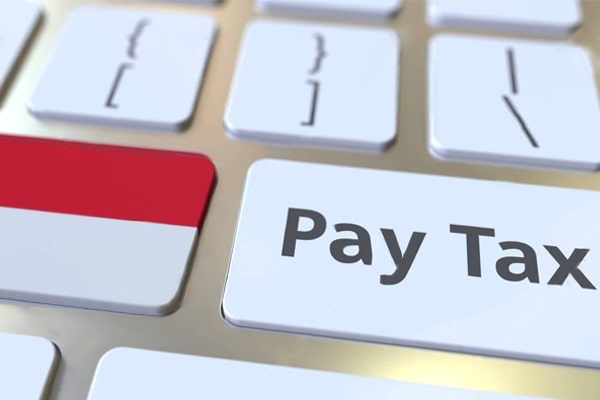
Our team of
TAX EXPERTS
can help you meet tax compliance in Malaysia
An Introduction to Taxes in Indonesia
When starting a business in any country, it is more than likely that you will be faced with many different taxes and may consider tax services in Indonesia. Companies are usually obligated to submit audited financial statements and corporate income tax returns to the Indonesian taxation authorities if they meet these requirements:
- They are involved in collecting or managing public funds (e.g. banks, insurance, mutual funds);
- They have issued a debt acknowledgment letter to the public;
- Have registered as a public company (PT Tbk);
- Have registered as a limited liability company (PT);
- Values their assets or total business turnover over IDR 50 billion
Aside from income tax, value-added tax (VAT), and import tax are common taxes Indonesian businesses face. To learn more about taxes in Indonesia, continue reading.
Personal Income Tax
Personal income taxes in Indonesia must be paid by individuals that have lived for a total of 183 days within 12 months. In Indonesia, personal income taxes are calculated using a progressive rate ranging from 5 to 30 percent. While some may have to pay their personal income tax to the taxation office, they are most commonly paid by being withheld by employers every month.
Taxes paid on personal income are calculated as follows:
| Taxable Income (Indonesian Rupiah) | Tax Rate |
|---|---|
| Up to IDR 50 million per year | 5% |
| Between IDR 50 million and IDR 250 million | 15% |
| Between IDR 250 million and IDR 500 million | 25% |
| Above IDR 500 million | 35% |
To simplify calculations, Cekindo has a personal tax calendar to help determine your personal income tax or look for tax services in Indonesia.
Those that are obligated to pay taxes in Indonesia are called tax residents. While tax residents are taxed worldwide, under certain circumstances tax credits are available on foreign income. Indonesian resident taxpayers are defined as individuals that are:
- residing in Indonesia
- present in Indonesia for over 183 days within one calendar year
- residing in Indonesia within a tax year
Individuals that do not meet the above points are considered non-resident taxpayers. These individuals do not have to pay individual income tax, or even register for an Indonesian tax ID number (NPWP). They will only be taxed if they receive an income sourced from Indonesia, but this is usually collected through withholding by the employer.
Corporate Income Tax
In Indonesia, the standard corporate income tax is a flat rate of 22%. This rate is only paid by companies that generate more than IDR 50 billion in annual revenue. Smaller companies receive a different income tax rate. Refer to the corporate income tax rate table below:
| Annual Company Revenue | Tax Rate |
|---|---|
| < IDR 4.8 billion | 0.5% |
| Between IDR 4.8 billion and IDR 50 billion | 11% |
| > IDR 50 billion | 22% |
You can use Cekindo’s corporate income tax calculator to estimate how much corporate income tax your company may need to pay.
There is also a tax cut available for publicly traded companies. Companies with at least 40% of their shares traded on the Indonesian stock exchange (IDX) are given a 5% tax cut from the above rates.
Foreign companies that conduct business in Indonesia must also pay corporate income tax. There are additional taxes for specific business activities, which include petroleum, general mining, geothermal, construction/construction design, and foreign drilling.
Value Added Tax
Indonesian Value-Added Tax, or VAT, is paid for goods and services at customs. VAT is considered a consumption tax that impacts businesses and consumers. This is because the tax is applied to goods in every stage of production until their final sale.
Indonesian VAT is between 5% and 15% depending on the product but generally stands at 10%. There are certain goods and services that are exempt from VAT. These include the export of taxable tangible and intangible goods as well as some taxable services.
Nontaxable goods and services are also exempt from VAT. Products extracted from the source (natural gas, gravel, coal, etc), basic commodities (vegetables, rice, sugar, etc), as well as food and beverages served at hotels and restaurants are considered non-taxable goods. Non-taxable services include:
- Medical and health services
- Mail services
- Social services such as funeral
- Religious services
- Insurance services
- Art and entertainment services
- Educational services
- Public transportation services
- Hotel services
- Manpower services
- Food and catering services
- Public telephone services
- Broadcasting services that are not relevant to advertising
Import Tax
There are three types of taxes to consider when importing goods to Indonesia: value-added tax (VAT), income tax, and import duty. The general rate of each tax is as follows:
| Tax | Tax Rate |
|---|---|
| Import duty | Between 0% and 450% depending on HS code of goods |
| Value-added Tax | Generally 10% |
| Income Tax | At least 2.5%, depending on the product |
Imported high-end goods will also be subject to a Luxury Tax. High-end goods that are taxed include:
- Luxury cars (150% – 200%)
- Yachts (75%)
- Luxury motorcycles (60%-125%)
- Alcohol beverages (5%-20%)
- Branded shoes (40%)
Need Help With Your Taxes?
Taxes in Indonesia can get confusing, especially if you are expanding your business to Indonesia for the first time. Our finance and consulting team can help you navigate through Indonesia’s complex tax system with their abundance of knowledge in Indonesian tax law. Contact us for more information about tax services in Indonesia.
Enjoy A Hassle-Free Tax Compliance For Your Business in Indonesia
Our in-country team is dedicated to helping you secure the necessary tax compliance procedures for your business in Indonesia
